My grandfather was nicknamed Roşiştea by his mother when he was born, in 1932. It translates as little red one. He had red hair once, and everyone in his village calls him Red.
Before the fall of Communism in 1989, he was a farmer, with the function of zootechnical and fields brigadier – he measured how much of what was produced went to the state, and how much stayed with the people. After the revolution, he continued practicing subsistence agriculture on the family smallholding in Vărai, North Romania, a village surrounded by hills and forests. He lived with my grandmother – a fierce woman who knew how to make most things from scratch, and with his mother-in-law – a short, devout woman whose spirituality combined Orthodox-Christian rites with old pagan rituals. I spent my first five years in the village with them, and most of my childhood holidays after. I remember the snow being half a meter tall in winter, and the fields full of workers in summer.
Things changed since I was five. In the past twenty years, the village got lost somewhere between an attempt to modernise and an unwillingness to change. The census of 2011 counted 275 people. In January of 2020, the priest told me that barely over 100 remain, and that no one was born there in years. Of the people left, 42 are widowers living alone: my grandfather is one of them.
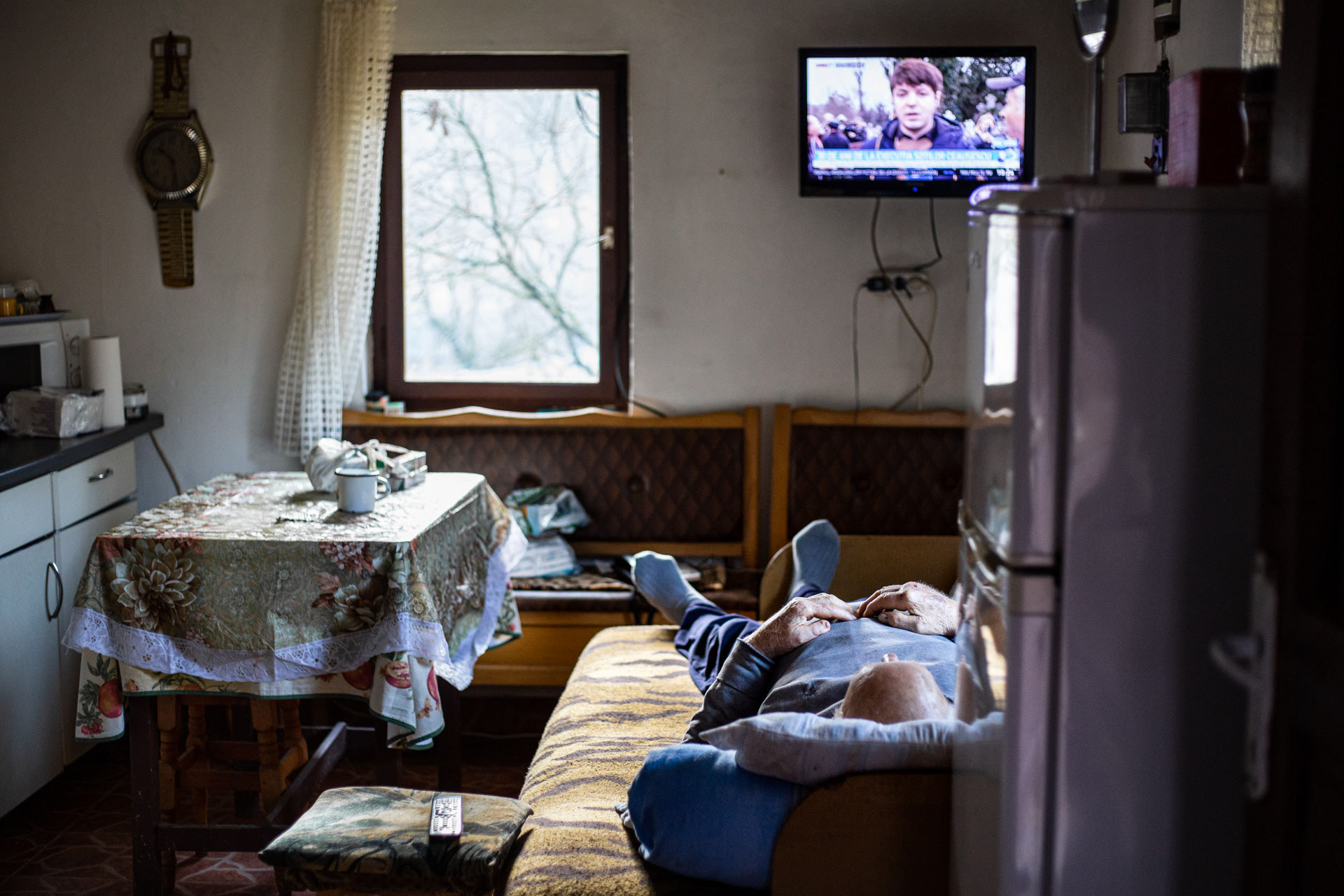
1. Grandfather watching programs about the '89 Revolution at Christmas. “They should not have shot him; they could have imprisoned him.”
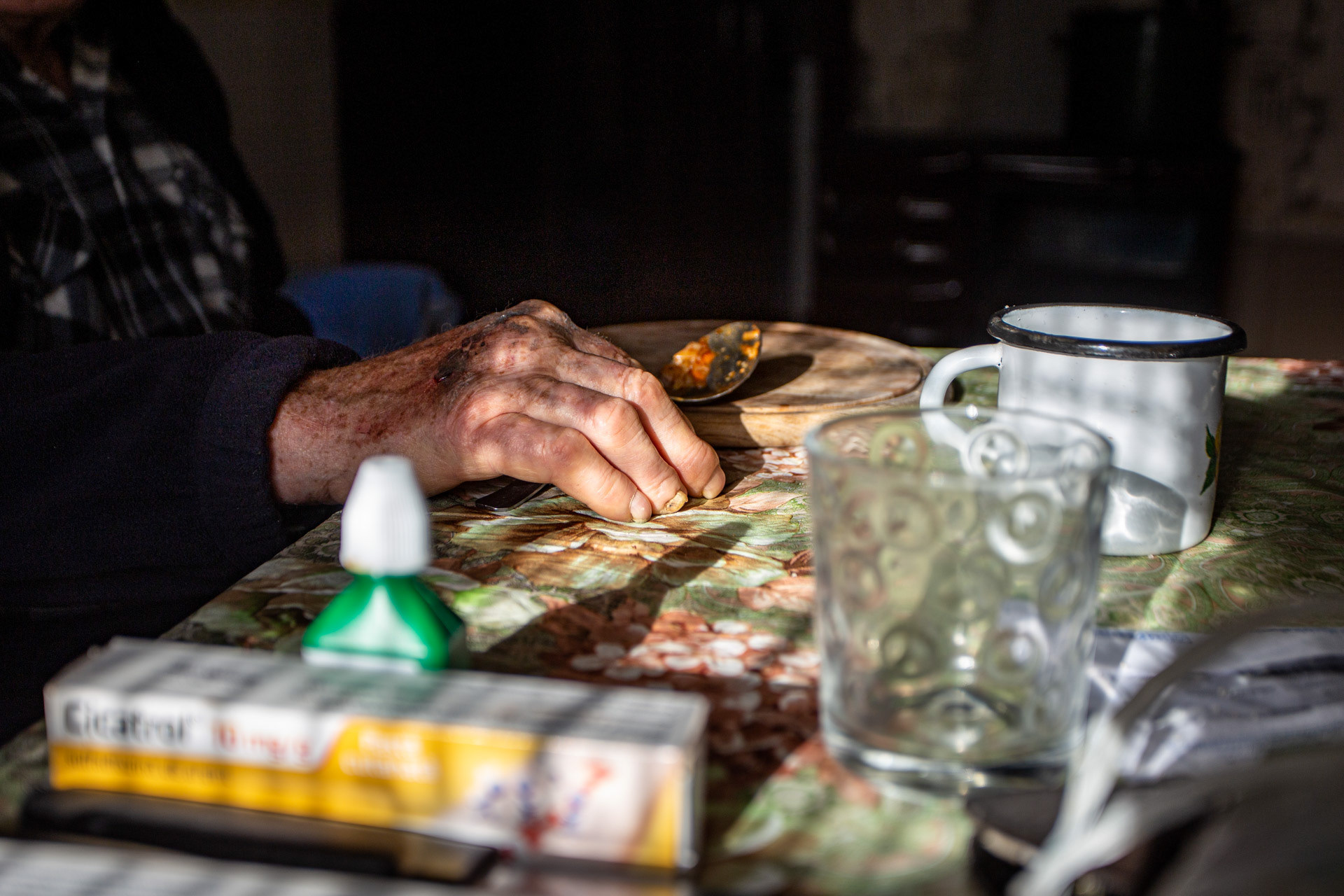
2. Grandfather worked the land for a very long time. “A long life. 88 years worth.”
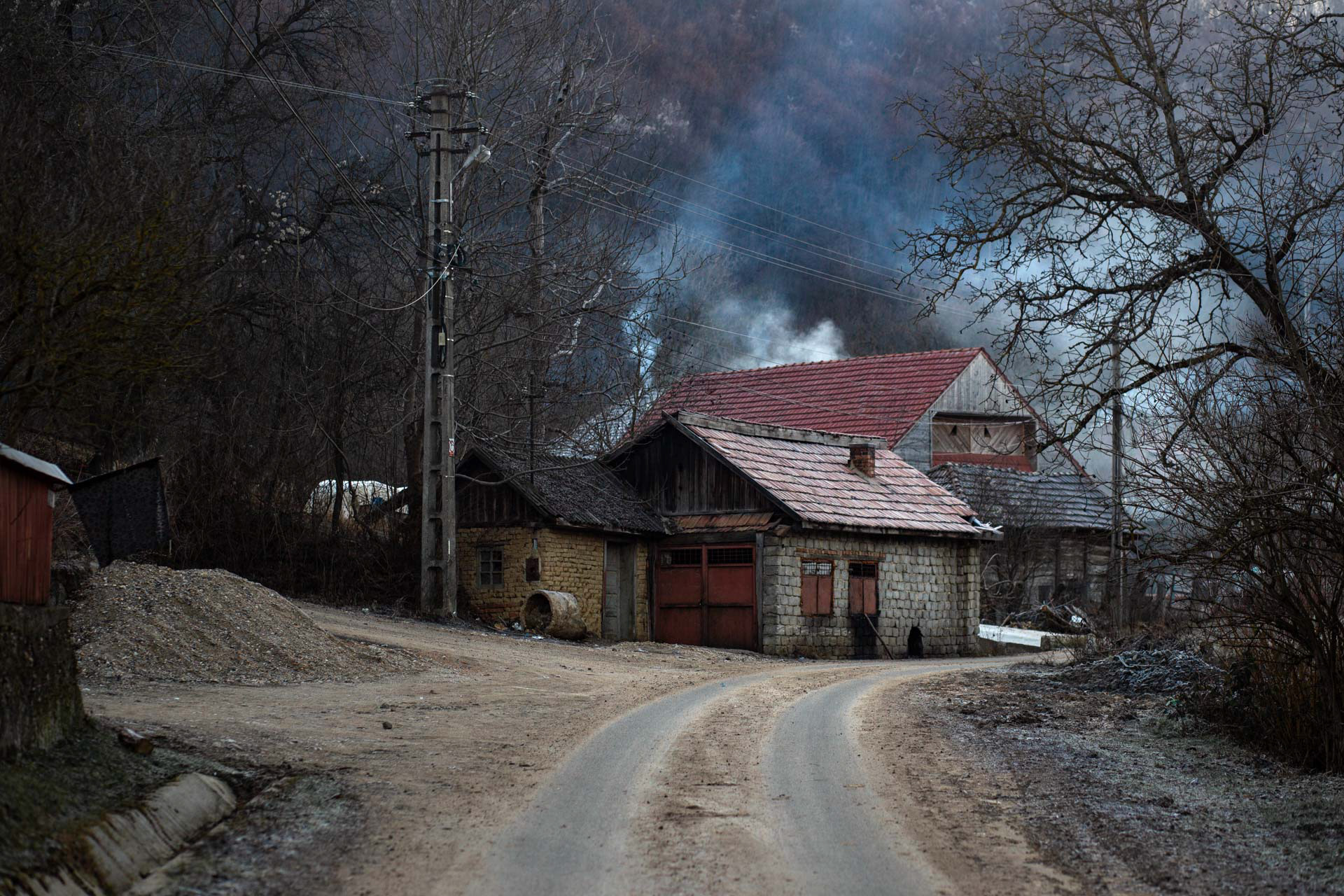
3. The community distillery. Each late autumn, after the plum harvest, grandfather made pălincă here. He no longer works the land, he no longer yields harvests.
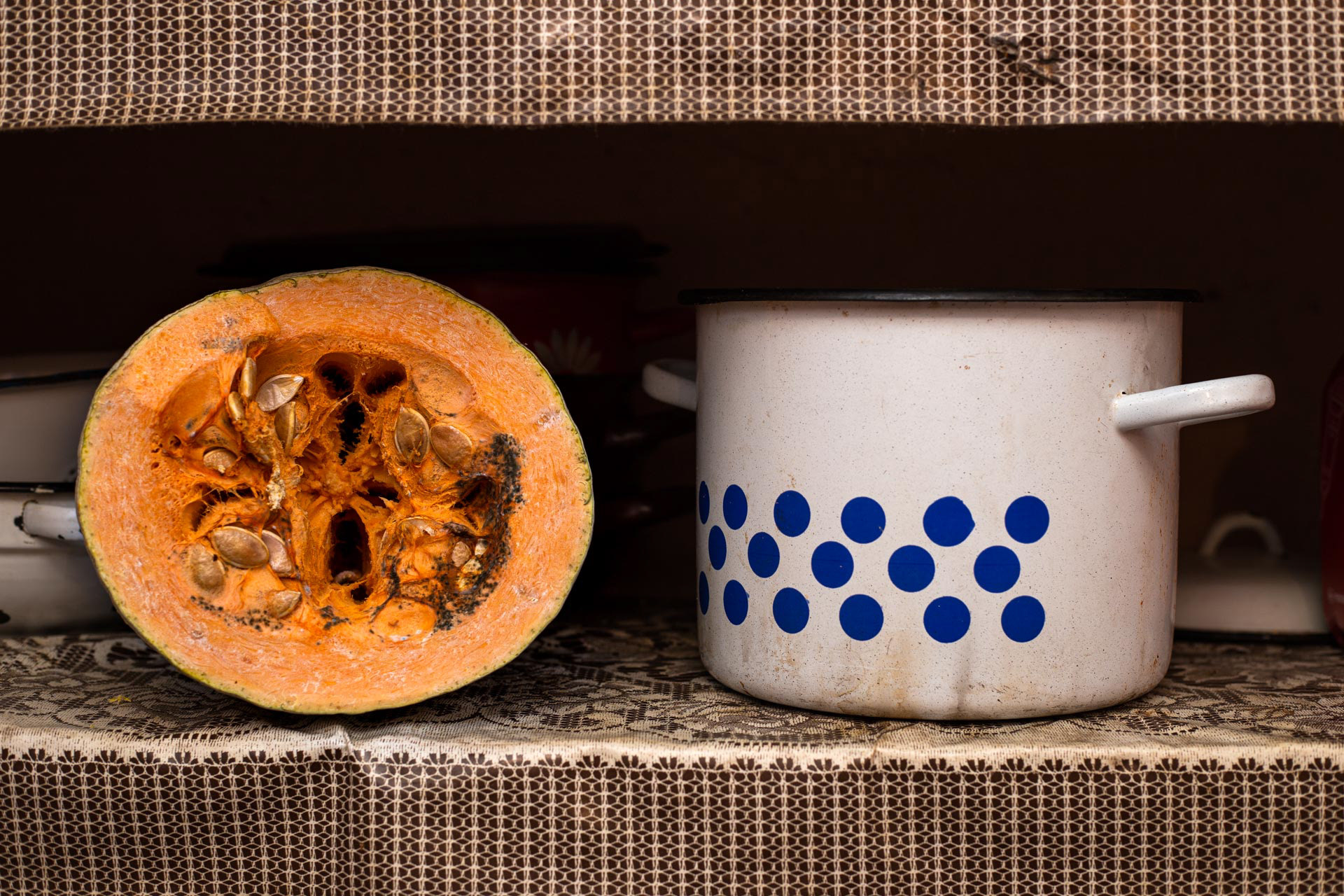
4. The children never left empty-handed. “Come visit, while you have somewhere to come, and someone to visit.”
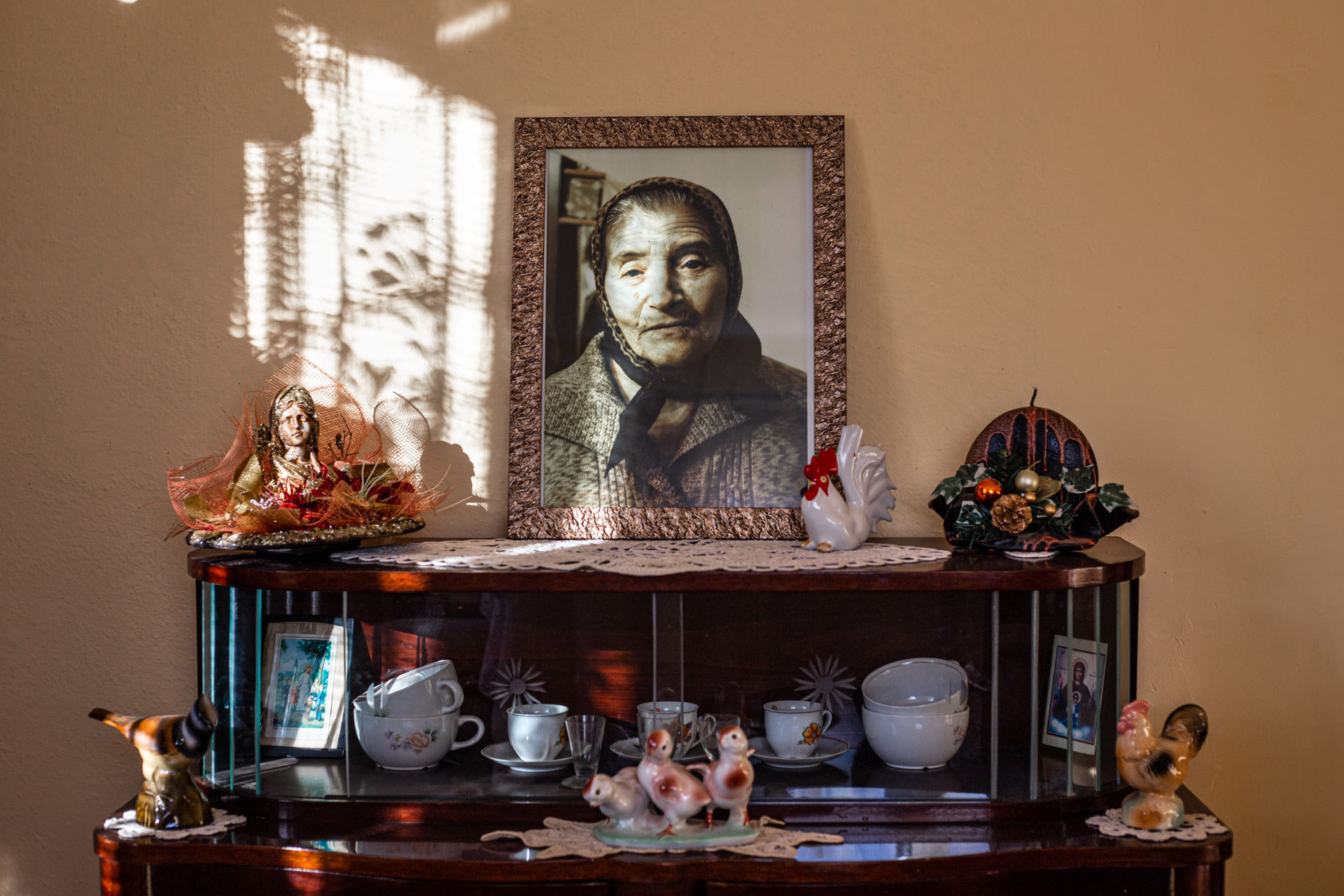
5. In memory of Grandmother. “She forgot her glasses here when she went to the hospital. Now she doesn’t need them anymore.” They were married for over 50 years, and constantly nagged each other.
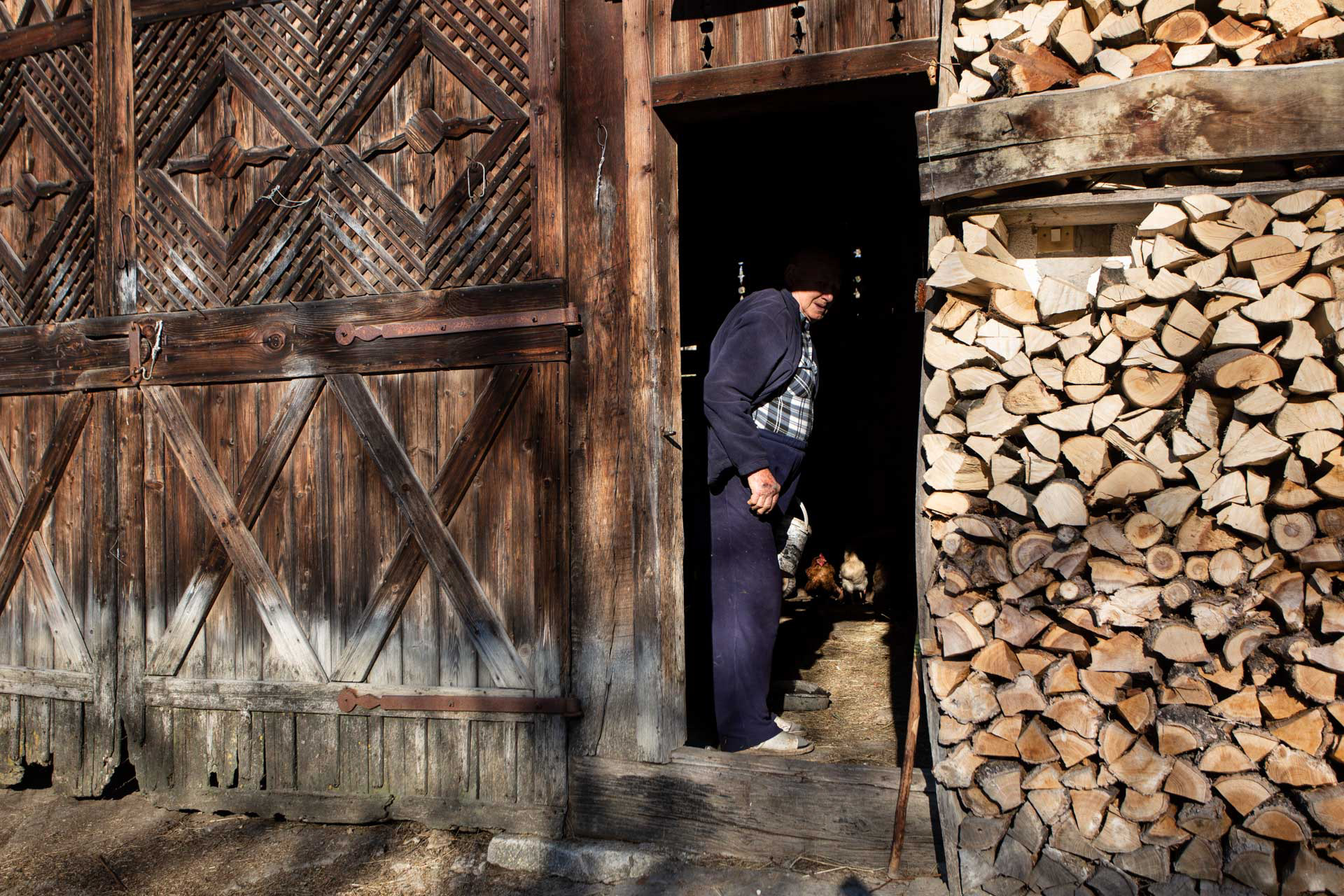
6. Most days are the same. In the morning, the dog and the chickens need fed. “Difficult, this loneliness. It wasn’t great with her, but it is worse without her.”
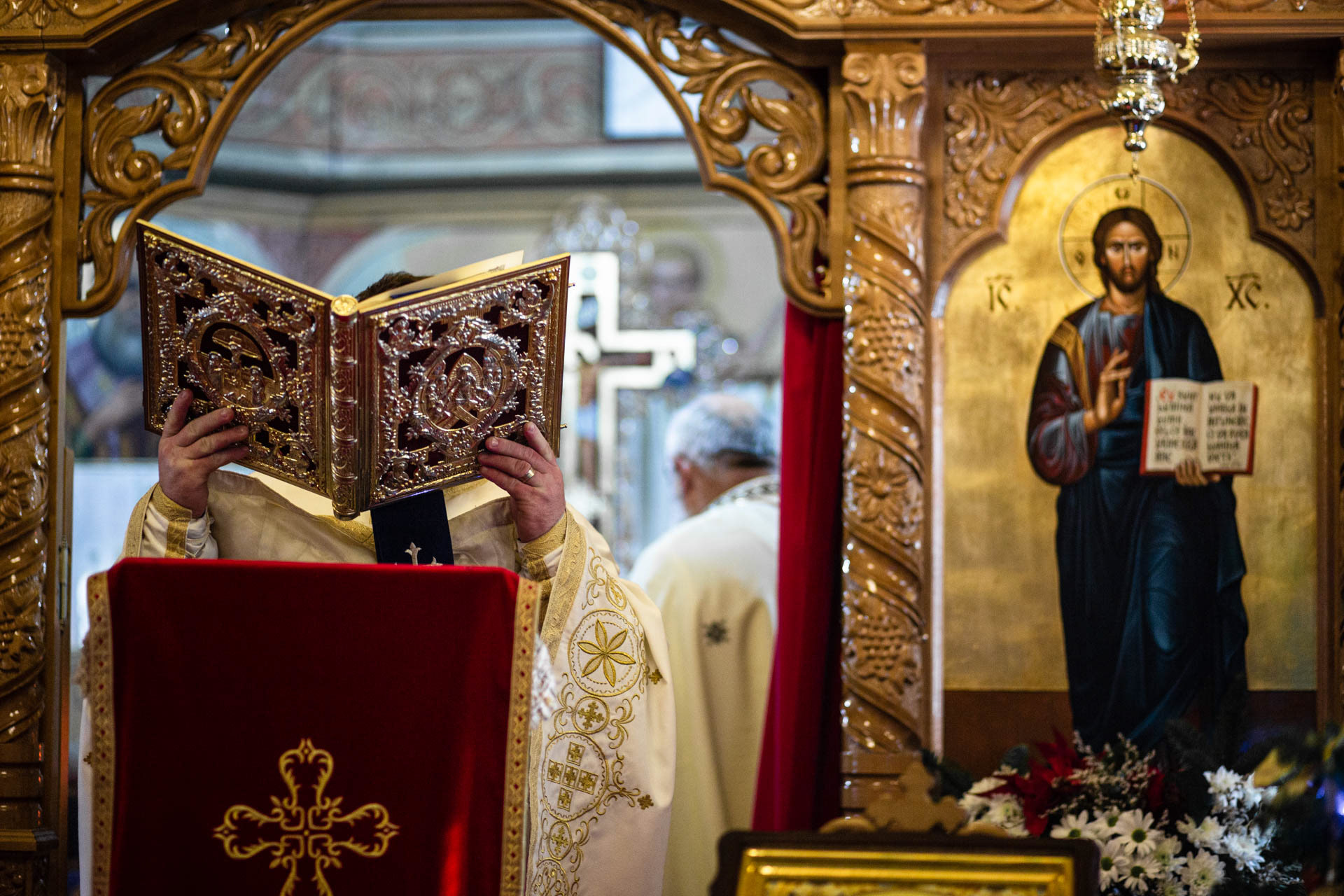
7. Untitled Orthodox. On New Year’s Day, the priest spoke of the troubled present, and the uncertain future. “Still, allow us to be, Father. For another year.”
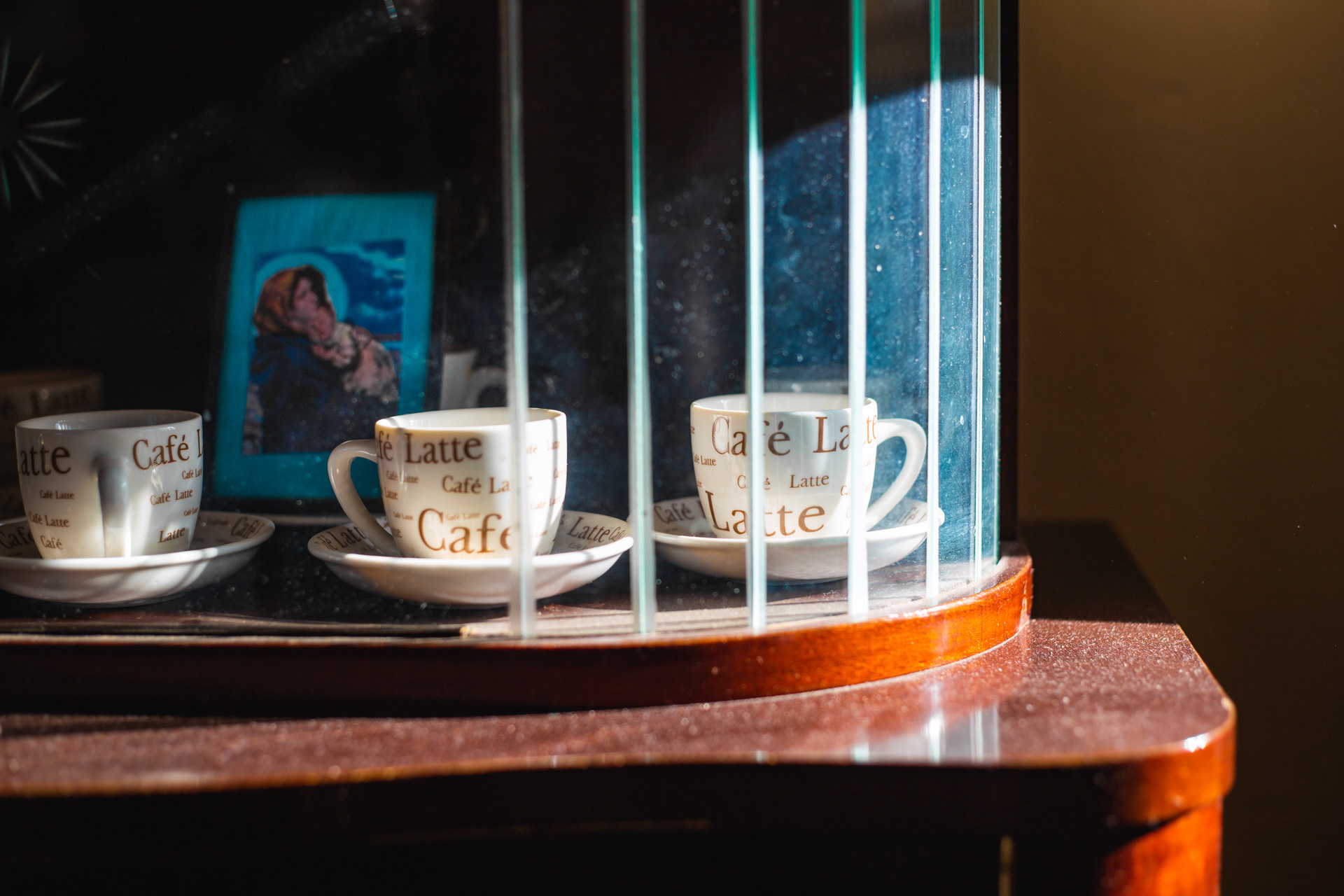
8. One summer ago. “This place will remain deserted. None of you will come to stay.”
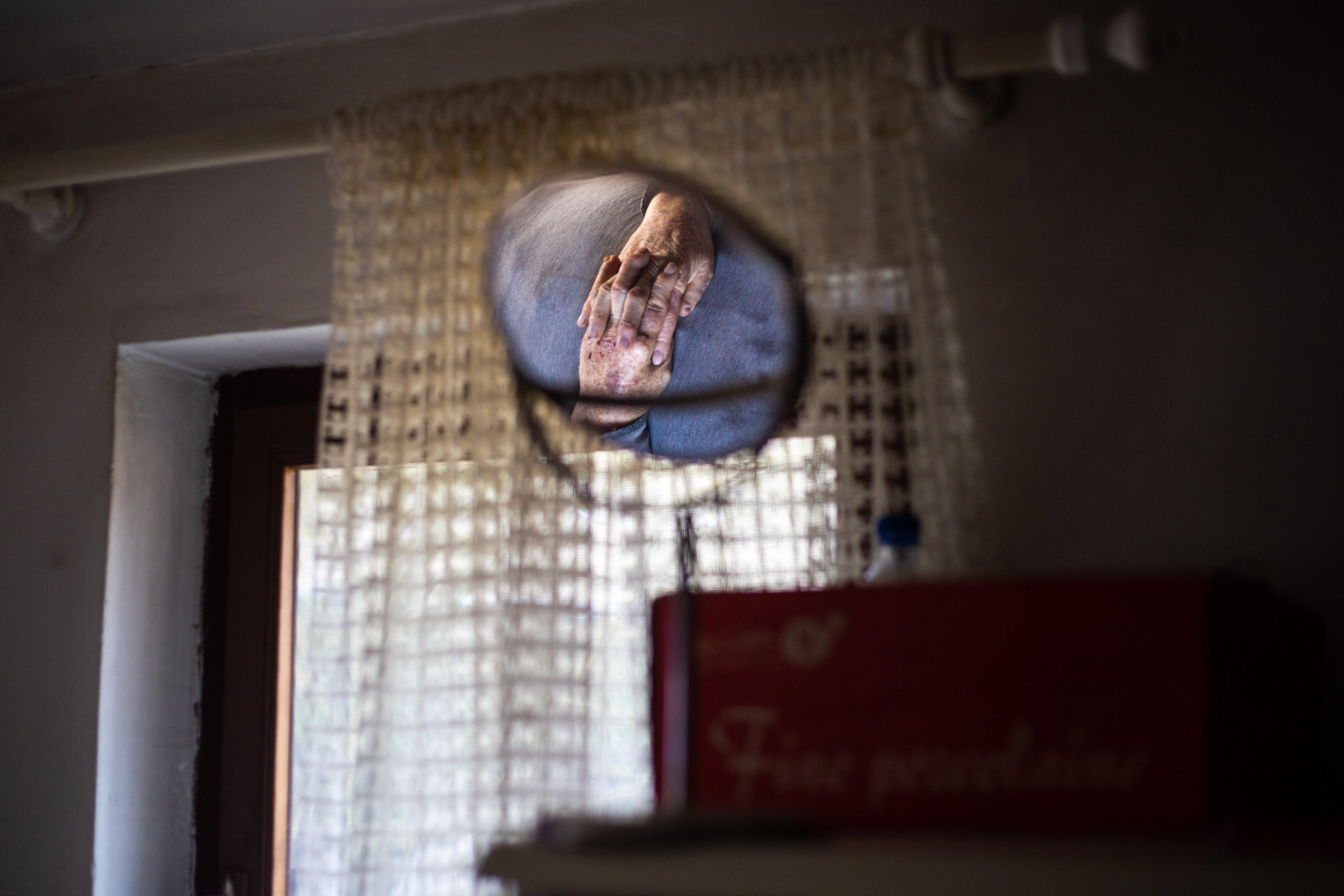
9. “Who knows when we’ll meet again, and if I’ll still be here when you come to visit.”
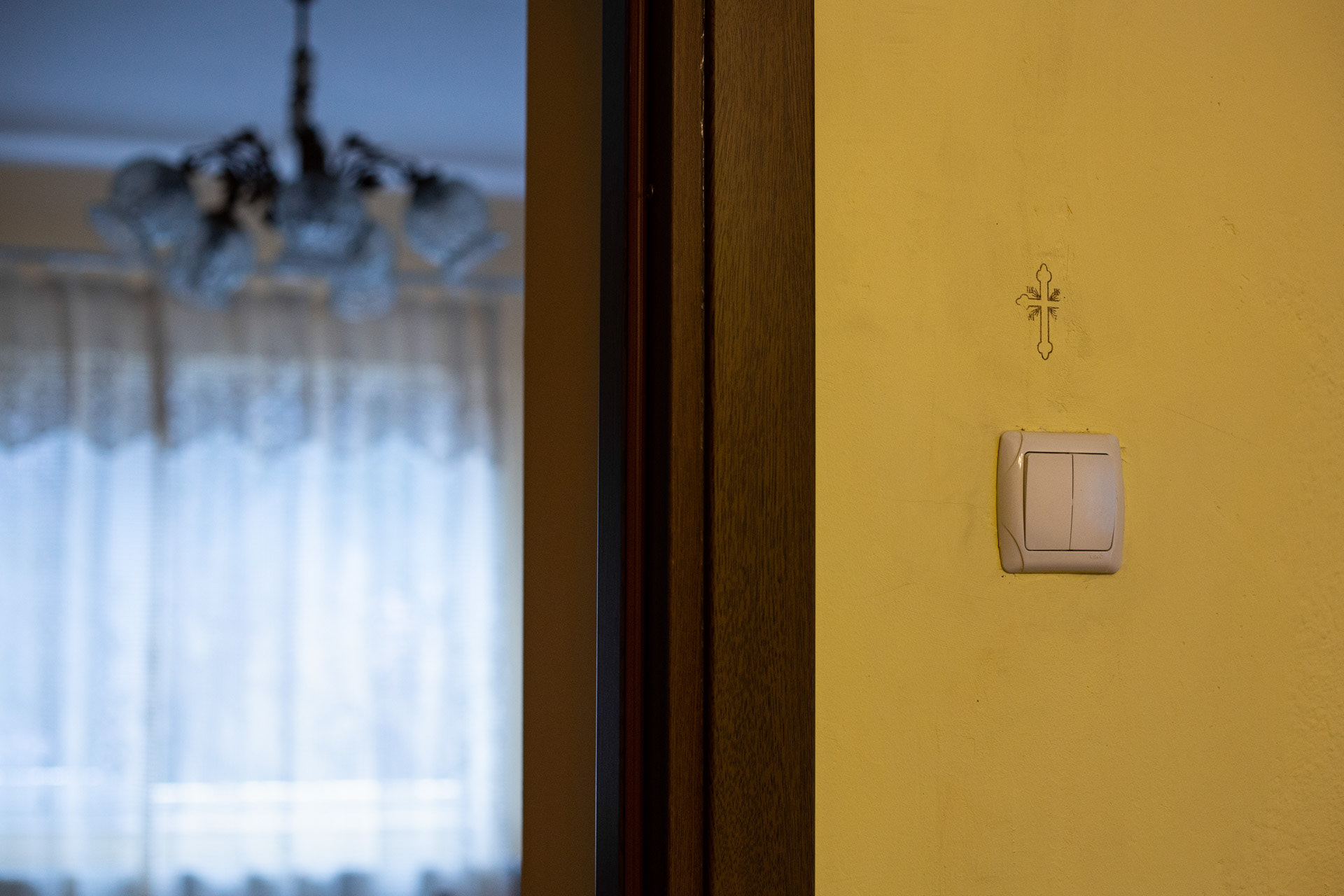
10. When a soul travels, the mirrors must be covered, the locks must be unlocked, and lights must be lit. This way, the soul cannot be trapped here.
Captions
1. Grandfather watching programs about the '89 Revolution at Christmas. “They should not have shot him; they could have imprisoned him.”
2. Grandfather worked the land for a very long time. “A long life. 88 years worth.”
3. The community distillery. Each late autumn, after the plum harvest, grandfather made pălincă here. He no longer works the land, he no longer yields harvests.
4. The children never left empty-handed. “Come visit, while you have somewhere to come, and someone to visit.”
5. In memory of Grandmother. “She forgot her glasses here when she went to the hospital. Now she doesn’t need them anymore.” They were married for over 50 years, and constantly nagged each other.
6. Most days are the same. In the morning, the dog and the chickens need fed. “Difficult, this loneliness. It wasn’t great with her, but it is worse without her.”
7. Untitled Orthodox. On New Year’s Day, the priest spoke of the troubled present, and the uncertain future. “Still, allow us to be, Father. For another year.”
8. One summer ago. “This place will remain deserted. None of you will come to stay.”
9. “Who knows when we’ll meet again, and if I’ll still be here when you come to visit.”
10. When a soul travels, the mirrors must be covered, the locks must be unlocked, and lights must be lit. This way, the soul cannot be trapped here.